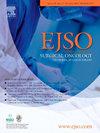Long-term impact of preoperative radiotherapy for rectal cancer on testicular function
IF 2.9
2区 医学
Q2 ONCOLOGY
引用次数: 0
Abstract
Introduction
The aim was to assess long-term impact of preoperative radiotherapy (RT) for rectal cancer on testicular function, its clinical relevance regarding sexual function and cancer-related events.
Materials and methods
This analysis of an original cohort with longitudinal design included 163 men with rectal or prostate cancer stage I-III treated with surgery in Stockholm, Sweden, between 2010 and 2014. Exposure to RT (n = 91) was quantified by cumulative mean testicular dose. Repeated measurement of serum Testosterone (T), free T and Luteinizing hormone (LH) respectively questionnaires of sexual function (IIEF and AMS) were collected before treatment (baseline), one and two years postoperatively. Data on cancer recurrence were collected from medical records during the standard five-year cancer follow-up. Association between hormone levels and patient reported outcome measures for sexual function was assessed by linear random-effect models with final analysis adjusted for age, BMI and ASA-score.
Results
Testicular dose was associated with a preoperative decline in T and free T, with a consecutive increase in LH and LH/T ratio during the study period. Not all androgen levels recovered within two years. Testosterone levels were associated with patient reported outcome measures for sexual function. Elevated LH one year after surgery for rectal cancer was associated with a three-times increased risk for cancer recurrence.
Conclusion
Endocrine testicular function is related to sexual symptoms in men treated for rectal- or prostate cancer. Monitoring of testicular function in these patients could be valuable to improve interventions for treatment-related sexual dysfunction. The association between elevated LH and cancer recurrence requires further investigation.
直肠癌术前放疗对睾丸功能的长期影响。
前言:目的是评估直肠癌术前放疗(RT)对睾丸功能的长期影响,其与性功能和癌症相关事件的临床相关性。材料和方法:这项纵向设计的原始队列分析纳入了2010年至2014年在瑞典斯德哥尔摩接受手术治疗的163名I-III期直肠或前列腺癌患者。接受RT照射(n = 91)以睾丸累积平均剂量量化。治疗前(基线)、术后1年、2年分别重复测定血清睾酮(T)、游离睾酮(T)和黄体生成素(LH)的性功能调查表(IIEF和AMS)。癌症复发的数据是在标准的五年癌症随访期间从医疗记录中收集的。通过线性随机效应模型评估激素水平与患者报告的性功能结果测量之间的关系,最终分析调整了年龄、BMI和asa评分。结果:睾丸剂量与术前T和游离T下降相关,研究期间LH和LH/T比值持续升高。并不是所有的雄激素水平都能在两年内恢复。睾酮水平与患者报告的性功能结果有关。直肠癌术后一年LH升高与癌症复发风险增加三倍相关。结论:男性直肠癌或前列腺癌患者的内分泌睾丸功能与性症状有关。监测这些患者的睾丸功能可能对改善治疗相关性功能障碍的干预措施有价值。黄体生成素升高与癌症复发之间的关系有待进一步研究。
本文章由计算机程序翻译,如有差异,请以英文原文为准。
求助全文
约1分钟内获得全文
求助全文
来源期刊

Ejso
医学-外科
CiteScore
6.40
自引率
2.60%
发文量
1148
审稿时长
41 days
期刊介绍:
JSO - European Journal of Surgical Oncology ("the Journal of Cancer Surgery") is the Official Journal of the European Society of Surgical Oncology and BASO ~ the Association for Cancer Surgery.
The EJSO aims to advance surgical oncology research and practice through the publication of original research articles, review articles, editorials, debates and correspondence.
 求助内容:
求助内容: 应助结果提醒方式:
应助结果提醒方式:


